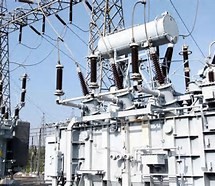As Nigeria commemorates its 65th Independence anniversary, industry experts have described the signing of the new Electricity Act into law as a transformative milestone with the potential to unlock the country’s vast energy opportunities.
The Act, which liberalises electricity generation and distribution, empowers state governments and encourages deeper private sector participation. Analysts say the reforms are already beginning to yield tangible results across the power landscape.
Mr. Hammed Abiodun, Managing Director of MOMAS Electricity Meters Manufacturing Company Ltd. (MEMMCOL), noted that the law has spurred the growth of Independent Power Plants (IPPs), providing more reliable electricity to industrial clusters and private estates.
“This Act gives states the authority to set up and regulate their own electricity commissions,” Abiodun said. “We are seeing states develop independent power structures that complement the national grid. It is a decentralisation model that enhances efficiency and innovation.”
He added that states are also viewing electricity as a strategic source of internally generated revenue (IGR), while new investments in infrastructure are gradually reshaping the energy ecosystem.
Highlighting his firm’s role, Abiodun said MEMMCOL — with more than 30 years of experience — continues to drive local innovation and technology development. He applauded initiatives such as the Presidential Metering Initiative (PMI), the Distribution Sector Recovery Programme (DISREP), the National Mass Metering Programme (NMMP), and the Meter Asset Financing scheme (MAF).
“These programmes are central to closing the metering gap and strengthening revenue collection across DisCos. However, more emphasis must be placed on local production of meters rather than imports. Nigeria has 54 licensed meter manufacturers capable of meeting demand, creating jobs, and guaranteeing after-sales services,” he said.
Abiodun further urged government to prioritise Nigerian-made solutions as a pathway to boosting GDP, stabilising the Naira, and building a resilient domestic power industry.
Also assessing reforms, Mr. Muda Yusuf, Chief Executive Officer of the Centre for the Promotion of Private Enterprise (CPPE), pointed to the oil and gas sector as another area witnessing renewed momentum.
According to him, the implementation of the Petroleum Industry Act (PIA), coupled with bold policy reforms, is already attracting investment, improving security, and stabilising output.
“Incentives for deep offshore exploration and gas development are beginning to deliver results. Crude oil production is improving, and we are edging closer to meeting our OPEC quota,” Yusuf said.
He linked part of this success to better security in the Niger Delta, noting that the Host Community Development Trust Fund has strengthened local ownership and reduced sabotage.
Nevertheless, Yusuf acknowledged lingering resistance in the downstream sector, where entrenched subsidy interests continue to resist deregulation.
“The Dangote Refinery is a milestone, but government must remain firm in dismantling the old order. Institutional bottlenecks, particularly in joint venture cash calls, must also be addressed to attract investors,” he warned.
Yusuf advocated for a governance framework similar to that of NLNG, insulated from political interference, and called for digitalisation of the energy value chain to curb corruption and improve efficiency.
Looking ahead, he stressed that Nigeria must pursue a balanced energy transition strategy.
“We cannot abandon fossil fuels prematurely. The pragmatic approach is to maximise oil and gas revenues while steadily investing in renewables. That dual path is crucial for economic stability,” he said.
Both experts agreed that with firm political will, stakeholder collaboration, and strategic investment, Nigeria can achieve a sustainable, investor-friendly energy sector capable of powering growth in the years ahead.





